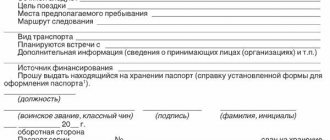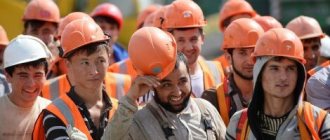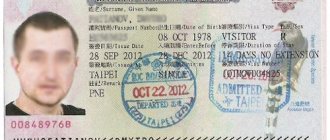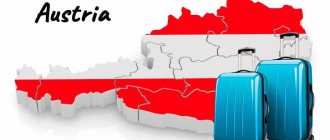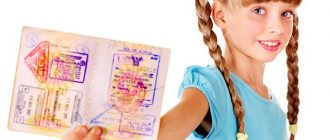Note 1
Modern migration processes are considered an important and integral part throughout the world. Corresponding migration processes occur under the conditions that people always strive to create favorable and comfortable conditions for themselves for their life activities. It is as a result of this that corresponding spatial, that is, territorial movements occur. Some world countries are thus increasing their population, while some, on the contrary, are reducing it in this way.
Modern migration policy allows for each country to determine a set of specific measures that are aimed at regulating the entire migration process, as well as controlling the entire migration flow. It is noteworthy to note that the modern migration process in all countries of the world is at the stage of modernization and regular improvement. For example, during the Soviet era, migration policy was largely restricted and strictly controlled by government and other supervisory structures. Only after the collapse of the Union were citizens able to freely and legally leave the country and return if necessary.
Finished works on a similar topic
- Course work Migration policy in Russia 440 rub.
- Abstract Migration policy in Russia 250 rub.
- Test work Migration policy in Russia 210 rub.
Receive completed work or specialist advice on your educational project Find out the cost
Main types of migration policy in Russia
In order to accurately understand how the actions of migration policy, which is adopted and established on the territory of the Russian Federation, take place, it is important to understand what its varieties exist. It is worth immediately noting that modern migration policy differs significantly from the demographic, economic and social sectors in the Russian Federation.
Today it is possible to determine the following types of migration policies that are established and applied in the country. The classification is based on the definition of population migration:
- Duration. It is important to understand that any citizens of the country have the legal right to leave and enter the country not only temporarily, but also on a permanent basis.
- Reasons for moving. Absolutely any citizens living in the countries of the world can decide to migrate. The most common reasons at the moment are economic reasons. As a rule, this is inflation and unemployment. In addition, the reasons may be military, political, family and many others.
- Directionality. In accordance with the legislation adopted in the country, migration can be external in nature, when citizens leave the country. Accordingly, migration can be internal, allowing you to move across territories within the country.
- Organizations. The migration process can be individual, mass or forced. It happens for several reasons.
Need some teacher advice on a similar topic? Ask a question to the teacher and get an answer in 15 minutes! Ask a Question
Note 2
Modern migration law also makes it possible to provide labor migration with the necessary personnel. A distinctive feature can only be the purpose of a particular move. For example, migration, which is based on labor law, provides the necessary and high-quality conditions for labor relocation and good wages.
Modern migration policy of Russia
INTRODUCTION
An effective state migration policy in Russia at the present stage is necessary for the economic growth of the country, as well as for solving the demographic problem and stabilizing the population of Russia.
The principles and main directions of state activity in the field of migration are defined in the “Concept of the state migration policy of the Russian Federation for the period until 2025” [1] (hereinafter referred to as the Concept).
The Concept defines the strategic guidelines for migration policy against the background of the expected economic, social and demographic development of the country, its foreign policy and integration processes with the CIS countries, the Customs Union and the Common Economic Space.
The concept defines the main types of migration in Russia: academic mobility; temporary migration; long-term migration; quotas for attracting foreign labor; short-term migration; migration for permanent residence; illegal migration; educational (study) migration; organized attraction of foreign labor (foreign workers); seasonal labor migration; work migration. Labor migration can be internal or international. Labor migration is divided into legal and illegal. Russia is characterized by all types of labor migration, but illegal labor migration is problematic.
According to the Concept, labor migrants will be attracted to the country not only to perform low-skilled and construction work, but also educated foreigners who have a profession, specialty and qualification in demand on the Russian labor market.
The concept of “highly qualified specialist” was introduced by the Russian Federation Law “On the Legal Status of Foreign Citizens in the Russian Federation” dated July 25, 2002 No. 115-FZ [2], which established regulations for the labor activity of this category of foreign citizens in Russia. A number of preferences have been established for them, providing for the issuance of work permits outside of quotas for a period of up to three years with the possibility of extension, as well as their involvement in labor activities without the employer obtaining the appropriate permit. The list of qualified specialists of foreign citizens is established by Order of the Ministry of Health and Social Development of the Russian Federation dated December 27, 2011 N 1653n [3]. On February 15, 2011, amendments to the law “On the legal status of foreign citizens in the Russian Federation” [4] came into force, which make it possible to hire highly qualified scientific and teaching workers with a salary threshold of up to 1 million rubles, and specialists involved in the creation and ensuring the functioning of innovation, without limiting the amount of wages [5]. Russia is becoming a more attractive country for foreign highly qualified specialists.
Current situation
Among labor migrants, there is a high proportion of people with higher and secondary technical education, which is currently not in demand. Under favorable conditions, migrant workers can find employment, for example, as doctors and teachers. Russia will receive ready-made specialists without spending money or effort on training them. The human capital of labor migrants will replenish the assets of the country’s labor organizations.
The goal of Russia's migration policy is to “use” the intellectual and labor potential of labor migrants, to use the human capital of labor migrants in the interests of innovative and economic development of Russia.
Every year, 10-12 million foreign citizens come to Russia to visit relatives, for treatment, study, or on personal matters, 70-80% from the CIS. Some of them leave the Russian Federation in due time, some receive a work permit, and the rest “dissolve” on the territory of Russia, and the Federal Migration Service of the Russian Federation classifies them as illegal migrants [6]. Every year, 3–5 million illegal labor migrants work in the country [7].
The existing legislation of the Russian Federation in the field of labor migration is focused on attracting temporary workers and does not contribute to their adaptation and integration.
Russia lags behind developed countries, especially the United States, in attracting qualified labor migrants. The US migration policy is aimed at attracting highly qualified specialists, promising students, entrepreneurs, artists and scientists from around the world to the country [8]. Population migration, especially labor migration, is becoming an increasingly competitive area of world politics and economics. The migration attractiveness of Russia in comparison with other states is low and applies mainly to citizens of member states of the Commonwealth of Independent States. Labor migration is an important resource for Russia’s economic development against the backdrop of demographic decline.
Labor migration is the redistribution of human capital from poor countries to richer ones, a powerful resource for economic development, which is of key importance not only for strong economic growth, but also for ensuring social dynamics, strengthening Russia’s position in the world, and improving the level and quality of life of Russian citizens.
A unique migration situation has been created in Russia: the borders are open within the framework of the Customs Union and the Common Economic Space with several states, it is impossible not to let migrants in, it is impossible to control everyone, and not a single scenario known to the world is suitable for Russia. A significant part of the accumulated human capital of the former republics of the USSR is functionally devalued taking into account the new needs of national markets, and therefore is looking for new markets outside the borders of their state. The migration potential of the Central Asian republics is for Russia the main labor migration capital in general and human capital in particular. The main countries supplying human capital to the Russian labor market are Uzbekistan, Tajikistan, and Ukraine. A high level of presence of labor migrants is observed in economically developed regions of the country: the cities of Moscow and St. Petersburg, the Moscow region.
At the same time, labor migrants of the new generation from the CIS have a lower level of education, knowledge of the Russian language and professional qualifications than their predecessors. The presence in Russia of numerous groups of migrants who do not speak the state language, are not familiar with the cultural traditions of the host country, and the norms of behavior in it, can cause discontent among the indigenous population, and this contributes to the development of extremist sentiments. Knowledge of the Russian language by labor migrants is an objective necessity, therefore, a mandatory exam in the Russian language, the history of Russia, and the fundamentals of legislation of the Russian Federation has been introduced for labor migrants [9]. Russia plans to introduce special programs in schools to teach children of labor migrants the Russian language, which is due to the growing number of migrants and the need for their integration into the Russian cultural environment. In Russia, conditions are being created for teaching the Russian language to migrant workers: courses, centers, and schools for studying the Russian language are opening for migrants and members of their families. In Kyrgyzstan, with the help of the Russian Embassy, a Center for Support of the Russian Language and Cultural Heritage was opened in 2012, which teaches the Russian language to migrants intending to go to the Russian Federation to work or study [10]. Courses on learning the Russian language for migrants in 2012, with the assistance of the Federal Migration Service of Russia, were opened in the Stavropol Territory, Yekaterinburg, Novosibirsk, Yaroslavl and other cities of the country.
The Russian language exam will become mandatory in 2013 for migrants who want to live and work in Russia.
Knowledge of the Russian language for the Russian labor market is the main factor for the integration of the human capital of labor migrants into the country's economy. Thus, Russia is investing in the human capital of migrant workers and members of their families through Russian language training programs.
The concept of “labor market” is currently being replaced by the concept of “labor market”. The Russian labor market is overcrowded with labor migrants from the CIS countries. The main areas of use of foreign labor in Russia are: construction; industry; transport; agriculture and forestry.
Labor migrants in Russia are employed in the service sector, construction, in jobs that are difficult to find among the country's indigenous population.
Migrant workers, filling vacancies for the indigenous population of Russia, create a problem with employment for Russian citizens and reduce the overall standard of living in the country. Price competition between the human capital of labor migrants and the indigenous population leads to a depreciation of the human capital of the local population and a decrease in the income of the latter. Income inequality, under certain conditions, acts as an incentive for large investments in human capital in order to make it adequate to the changed structure of demand.
Labor migrants working legally in Russia do not have social guarantees, maternity benefits, temporary disability, or the right to a pension. Migration of labor resources is accompanied by a redistribution of income of employees and changes in the requirements for the human capital of labor migrants.
A reduction in migration in Russia will lead to a decrease in economic growth and living standards of the population, and may cause social explosions.
Labor migration mitigates the demographic crisis in the Russian labor market and is one of the factors of economic growth in Russia.
The state’s modern migration policy creates comfortable conditions for labor migration to attract highly qualified specialists.
In modern conditions, labor migration of highly qualified workers is an important source of human capital accumulation, ensuring welfare and economic growth in Russia. Competition for attracting highly qualified specialists is international. One of the strategic tasks of the state is to create conditions and mechanisms for attracting highly qualified and qualified specialists of various profiles, entrepreneurs and investors, who are in demand by the economy, to Russia, primarily on a long-term basis.
Bibliography
- Concept of state migration policy of the Russian Federation for the period until 2025 [Electronic resource]. URL: https://xn--d1abbgf6aiiy.xn--p1ai/acts/15635 (access date: 10/18/2012).
- Federal Law of July 25, 2002 N 115-FZ (as amended on July 28, 2012) “On the legal status of foreign citizens in the Russian Federation” // “Collection of Legislation of the Russian Federation”, 07/29/2002, N 30, Art. 3032
- Order of the Ministry of Health and Social Development of Russia dated December 27, 2011 N 1653n (as amended on April 18, 2012) “On approval of the List of professions (specialties, positions) of foreign citizens - qualified specialists employed in their existing profession (specialty), to which quotas do not apply, to 2012" // "Rossiyskaya Gazeta", N 26, 02/08/2012.
- Federal Law of December 23, 2010 N 385-FZ “On Amendments to Certain Legislative Acts of the Russian Federation” // “Collection of Legislation of the Russian Federation”, December 27, 2010, N 52 (Part 1), Art. 7000
- N. Gurinovich FMS: promoting sociocultural adaptation of migrants // “Man and Labor”, No. 10/2011 [Electronic resource]. URL: https://chelt.ru/new/?p=421 (access date: 10/18/2012).
- M. Gritsuk FMS counted illegal immigrants // Rossiyskaya Gazeta. 10.15.2012 [Electronic resource]. URL: https://www.rg.ru/2012/10/15/fms-site.html (access date: 10/18/2012).
- K. Latukhina Red light for an illegal immigrant // “Rossiyskaya Gazeta”. Federal issue No. 5806. July 14, 2012 [Electronic resource]. URL: https://www.rg.ru/2012/06/14/romadonovskiy.html (access date: 10/18/2012).
- Noskova K.A. "Human capital" of the USA: problems of immigration. // Economics and management of innovative technologies. – October, 2012. [Electronic resource]. URL: https://ekonomika.snauka.ru/2012/10/1334 (access date: 10/18/2012).
- Decree of the President of the Russian Federation of May 7, 2012 N 602 “On ensuring interethnic harmony” // “Rossiyskaya Gazeta”. Federal issue No. 5775. May 9, 2012 [Electronic resource]. URL: https://www.rg.ru/2012/05/09/nacio-dok.html (access date: 10/18/2012).
- A. Oreshkin will bring the language to Moscow. Migrants have the opportunity to prepare for the “guest worker exam” // “Rossiyskaya Gazeta-Nedelya” - Kyrgyzstan No. 5902 (229) dated October 4, 2012.
State migration policy
Back in 2012, the President of Russia approved the Concept, which establishes and defines the necessary migration goals and objectives. In accordance with the document, the following definitions become the goals:
- Solving specific demographic problems on the territory of the Russian Federation.
- Significant improvement in economic indicators. Attracting highly qualified personnel.
- National security of foreign citizens and residents of the Russian Federation.
Do you need proofreading or review of academic work? Ask a question to the teacher and get an answer in 15 minutes! Ask a Question
Concept of the state migration policy of the Russian Federation until 2025
Anyone can familiarize themselves with the concept of Russian state migration policy, developed for the period up to 2025. The full document is presented on the official website of the Federal Migration Service of the Russian Federation and is freely available.
This concept sets out the main directions of work of the state apparatus in the field of migration and explains the principle of operation of the main mechanisms of Russian migration policy. The goal pursued by migration policy in modern Russia is a quick and effective solution to all problems and issues related to Russia’s migration policy. All provisions of the concept are based on the rich experience of migration services, which over more than 20 years of service have carefully studied both the intensity of emigration from the country and the features of legal and illegal immigration. According to researchers, at this rate, by 2025 the population of Russia will be more than 140 million people. The main goals of Russia's migration policy:
- Planned increase in the country's population;
- Helping the Russian economy, ensuring a stable influx of labor, including highly qualified personnel;
- Ensuring the national security of the country, without infringing on the rights and freedoms of Russian citizens and foreigners;
- Suppression of any forms of discrimination and compliance with international law;
- Protecting the interests of the national labor market.
The government has approved a migration plan until 2021
First of all, all migration documents adopted at the first stage and their law enforcement practice will be analyzed. Based on this, proposals will be developed on where migration legislation should move next.
A similar analysis should be made with regard to attracting foreign citizens to work in Russia, including highly qualified specialists who come to us to carry out teaching, research and expert-analytical activities.
One of the goals of state migration policy is to stabilize and increase the country's population. A number of measures are provided for this. In particular, at the second stage it is planned to improve the state program to promote the voluntary resettlement of compatriots living abroad. Particular emphasis will be placed on increasing the migration attractiveness of the Siberian and Far Eastern federal districts. Priority will be given to qualified specialists, scientists, students, promising youth, as well as compatriots who want to engage in agriculture.
To increase the attractiveness of remote regions for Russian citizens, solutions will be developed to develop air transportation infrastructure and subsidize passenger air transportation between the regions of the Far North and Far East and the rest of the country.
It is also planned to improve the all-Russian database of vacancies “Work in Russia”.
Next year, regulations will be adopted to improve the institutions of residence permits and temporary residence permits in the Russian Federation. The law “On granting asylum on the territory of the Russian Federation” and a package of by-laws to it will also be adopted.
A large block of the event plan is dedicated to international cooperation. In particular, it is planned to conclude international agreements on temporary labor activities of citizens of one state on the territory of another, as well as the development and signing of international agreements on the organized recruitment of foreigners to carry out labor activities in Russia. In addition, international agreements on the mutual recognition of medical documents will be concluded on a permanent basis, which, in particular, will make it much easier for foreigners to obtain work permits in our country.
It is also planned to improve the information system for state control of the entry and stay of foreign citizens and statistical monitoring of migration processes. Moreover, this will happen constantly; every year the Russian Federal Migration Service will report to the government on how the information system works. It is the Federal Migration Service that controls the implementation of the entire plan and is responsible to the government.
